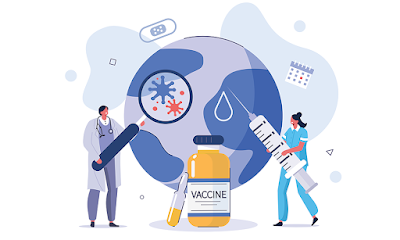Vaccines have been one of the most significant advancements in modern medicine, playing a crucial role in protecting public health and preventing the spread of infectious diseases. From smallpox to polio, vaccines have eradicated or significantly reduced the prevalence of many deadly diseases. This article explores the importance of vaccines, how they work, and their impact on global health.
How Vaccines Work
Vaccines stimulate the immune system to recognize and fight pathogens such as viruses and bacteria. They contain weakened or inactivated parts of a particular organism (antigen) that trigger an immune response within the body. This response helps the immune system recognize and combat the pathogen if exposed in the future.
Historical Impact of Vaccines
The history of vaccines dates back to the late 18th century when Edward Jenner developed the smallpox vaccine. This breakthrough led to the eventual eradication of smallpox, a disease that claimed millions of lives. Since then, vaccines have been developed for numerous diseases, including polio, measles, mumps, rubella, and influenza.
Benefits of Vaccination
- Disease Prevention: Vaccines prevent the spread of contagious diseases, protecting individuals and communities. For example, the measles vaccine has drastically reduced the incidence of measles worldwide.
- Herd Immunity: When a significant portion of a population is vaccinated, it provides indirect protection to those who cannot be vaccinated, such as infants and immunocompromised individuals. This concept is known as herd immunity.
- Economic Benefits: Vaccination reduces healthcare costs by preventing disease outbreaks and reducing the need for medical treatments and hospitalizations.
- Global Health: Vaccines play a vital role in global health initiatives, helping to control and eliminate diseases in developing countries where healthcare resources are limited.
Challenges and Misconceptions
Despite the proven benefits of vaccines, there are challenges and misconceptions that hinder vaccination efforts. Vaccine hesitancy, fueled by misinformation and fear, can lead to decreased vaccination rates and the resurgence of preventable diseases. It is essential to address these misconceptions through education and transparent communication about the safety and efficacy of vaccines.
The Future of Vaccination
The development of new vaccines continues to be a priority in the fight against emerging infectious diseases. The COVID-19 pandemic highlighted the importance of rapid vaccine development and distribution. Advances in technology, such as mRNA vaccines, have shown promise in providing effective protection against various pathogens.
Conclusion
Vaccines are a cornerstone of public health, offering protection against a wide range of infectious diseases. They have saved countless lives and continue to be a critical tool in the fight against global health threats. By understanding the importance of vaccines and supporting vaccination efforts, we can ensure a healthier and safer future for all.










No comments:
Post a Comment